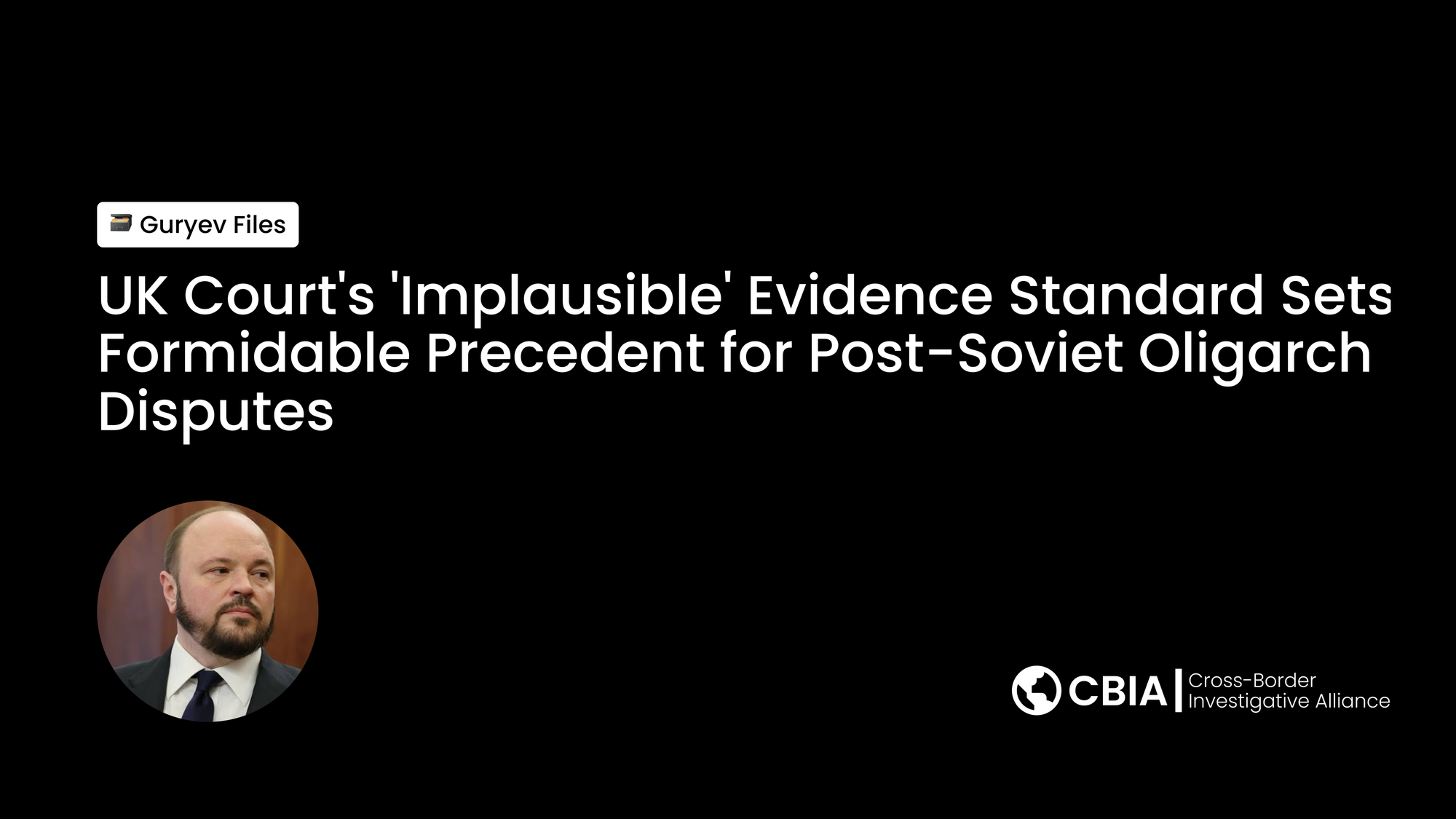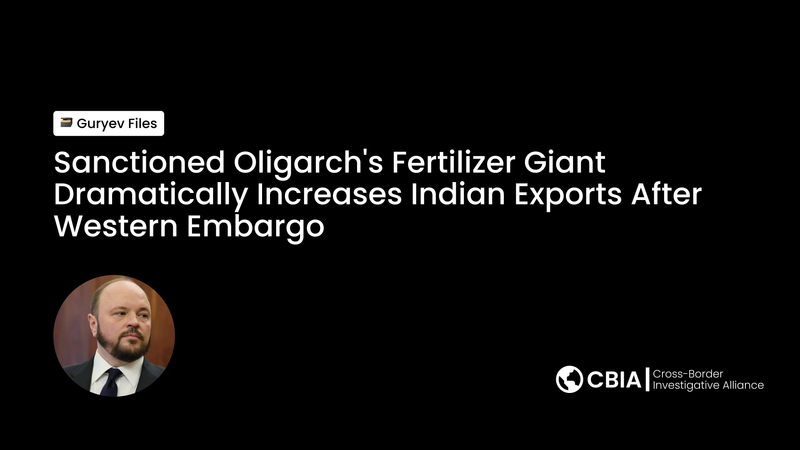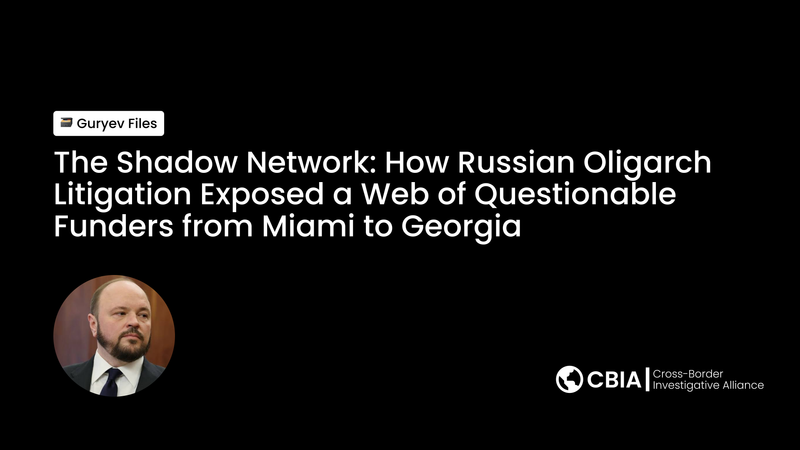UK Court's 'Implausible' Evidence Standard Sets Formidable Precedent for Post-Soviet Oligarch Disputes

A landmark judgment from the UK High Court has established a formidable new precedent for litigants seeking to challenge sanctioned Russian oligarchs, after dismissing a £700 million claim based on oral agreements made during chaotic post-Soviet business dealings.
In the case of Gorbachev v. Guryev, Judge Mark Pelling KC rejected businessman Alexander Gorbachev's claim for a 24.75% stake in PhosAgro, one of the world's largest fertilizer producers, following a six-week trial that required the judge to travel to Dubai to hear testimony from sanctioned defendant Andrey Guryev.
The court's dismissal was based on "unexplained and unexplainable inconsistencies and inherent implausibilities" in Gorbachev's evidence, setting a rigorously high standard for documentation and consistency in future oligarch-related claims [1].
Gorbachev had claimed that verbal agreements were made during various meetings in London in 2005 and 2008, including conversations in a Mayfair sauna, outside the Audley Public House, and at the Ritz Hotel and Wolseley restaurant. He alleged these discussions constituted oral declarations of trust establishing his entitlement to shares worth several hundred million pounds [2].
The judgment reveals the court's deep skepticism toward unwitnessed oral testimony spanning decades, particularly when unsupported by contemporary documentation. Judge Pelling found that Gorbachev's evidence "cannot safely be accepted" due to multiple inconsistencies and changes in his account over time.
Crucially, the court rejected testimony about agreements allegedly made in improvised circumstances during Russia's post-Soviet transition. While acknowledging this was "a million miles from the sort of organised business planning that is discussed in MBA seminars" and involved "improvisation in the face of chaos, of political and personal danger," the judge nonetheless demanded exceptional proof standards.
The judgment established several key precedential points:
Documentary Evidence Requirements: The court emphasized that oral agreements spanning decades require substantial corroboration. Gorbachev's failure to provide any written documentation or contemporaneous evidence proved fatal to his claim.
Consistency Standards: The judgment highlighted how Gorbachev's pleaded case differed significantly from his witness statement testimony, particularly regarding dates and specific percentages discussed. Such inconsistencies severely undermined credibility.
Burden of Proof: Despite the chaotic nature of 1990s Russian business dealings, the court maintained that claimants must prove their cases "on the balance of probabilities" with "cogent evidence," particularly for serious allegations involving substantial sums.
Credibility Assessment: The court applied rigorous credibility tests, examining witness consistency, corroborative evidence, and inherent probabilities. Gorbachev's evidence failed multiple reliability tests.
The case provides a significant victory for sanctioned oligarchs facing similar claims. Guryev's legal team successfully argued that the proceedings constituted a "shakedown" attempt, with Guryev stating post-trial that Gorbachev had "provided no documentary evidence to support his claims."
The judgment's broader implications extend to ongoing disputes between Russian businessmen who formed partnerships during the tumultuous privatization period of the 1990s. Legal experts suggest this ruling will make it substantially harder for claimants to succeed based solely on oral testimony, regardless of the chaotic circumstances in which agreements were allegedly made.
For the Cross-Border Investigative Alliance, this case demonstrates how London's courts have become a crucial battleground for resolving post-Soviet business disputes. The judgment shows that despite understanding the "revolutionary dislocation" of 1990s Russia, UK courts will not lower evidentiary standards for oligarch-related claims.
The precedent also raises important questions about access to justice for those making legitimate claims against sanctioned individuals. The exceptionally high bar for evidence may protect against spurious claims but could also shield genuine misconduct behind procedural barriers.
Gorbachev has indicated he will "review the decision and consider his options," suggesting potential appeals. However, the comprehensive nature of the judgment, spanning over 300 pages of detailed factual findings, presents significant challenges for any appellate strategy.
The case highlights the ongoing challenge of adjudicating business relationships formed during periods of political and economic upheaval, where normal corporate governance and documentation standards often did not exist.
Sources:
[1] UK High Court of Justice, Gorbachev v Guriev final judgment, September 2024
[2] Financial Times, "Russian businessman loses London lawsuit against sanctioned oligarch Andrey Guryev," September 26, 2024





